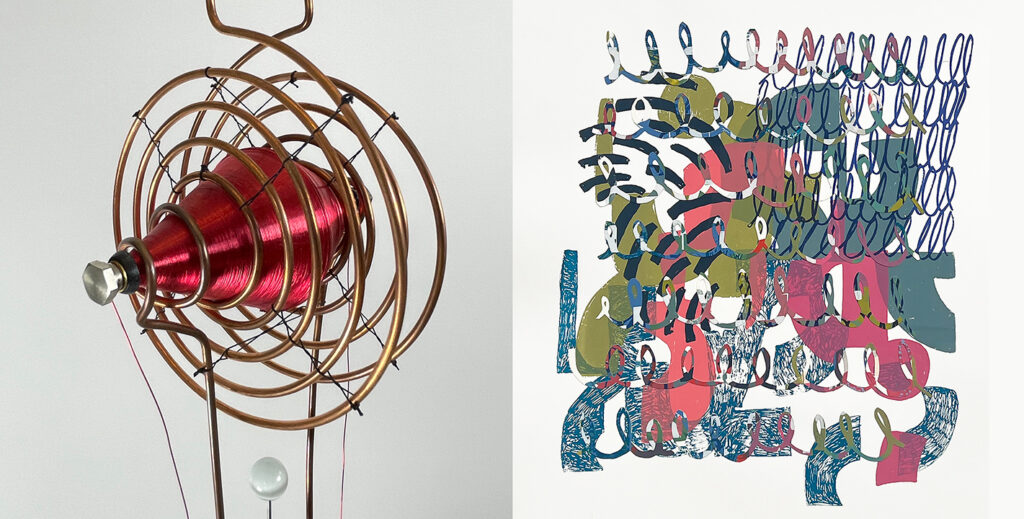Elizabeth Arzani & Owen Premore: Receiving Space
On view: September 7th – September 28th, 2024
Opening Reception: September 7th, 5-8pm
Artist Talk: TBA
Hours: Thursday – Saturday, noon-5pm

Elizabeth Arzani (b. Charlotte, NC) is an interdisciplinary artist and educator living and working in Portland, Oregon. She has exhibited nationally and internationally at the University of North Carolina, Charlotte, NC; The Center for Contemporary Art & Culture, Portland, OR; 1122 Gallery, Portland, OR; SOIL, Seattle, WA; and during Luxembourg Art Week in the Salon 2019 du Cercle Artistique de Luxembourg. She is a member of the artist collective, Carnation Contemporary, Portland, OR. Arzani has been granted artist residencies at Kulturschapp; Walferdange, Luxembourg and New Harmony Clay Project; New Harmony, IN. She has been the recipient of a Career Opportunity Grant from the Oregon Arts Commission with support from the Ford Family Foundation as well as two project grants from the Regional Arts & Culture Council. Arzani holds an MFA in Visual Studies from Pacific Northwest College of Art and a BFA in Painting and Art Education from the University of North Carolina at Charlotte.
Owen Premore, is Co-founder of Art in Oregon, curator, technician, and artist working in fibers, kinetics, interactive elements, and occasional printmaking. Premore earned his BA from the University of Oregon with an emphasis on drawing, painting, and printmaking, and an MFA in Spatial Art with a focus in interactive installation from San Jose State University. Following graduate school, he worked for the Oregon Museum of Science & Industry for twelve years where he managed traveling exhibits throughout the United States. In 2019, he established Premore Services LLC, his museum and gallery technical support business. Premore is also the Directing Curator of the Art About Agriculture Program at Oregon State University.
Premore’s artwork uses humor and relational familiarities to engage the viewer in conversations touching on political, social, environmental, and humanitarian topics. His textile sculptures often explore over indulgence, the larger impact of such behaviors, and propagating self-reflection using detailed recreations of familiar objects that aim to spark olfactory and gustatory memory. Premore’s textile-based installations are responses to place, setting, and attempt to reclaim humanness from pervasive stressors of the moment. His kinetic sculptures contain secondhand equipment and objects for new, experiential purposes that suggest usefulness, but instead liberates the viewer from practical work.
